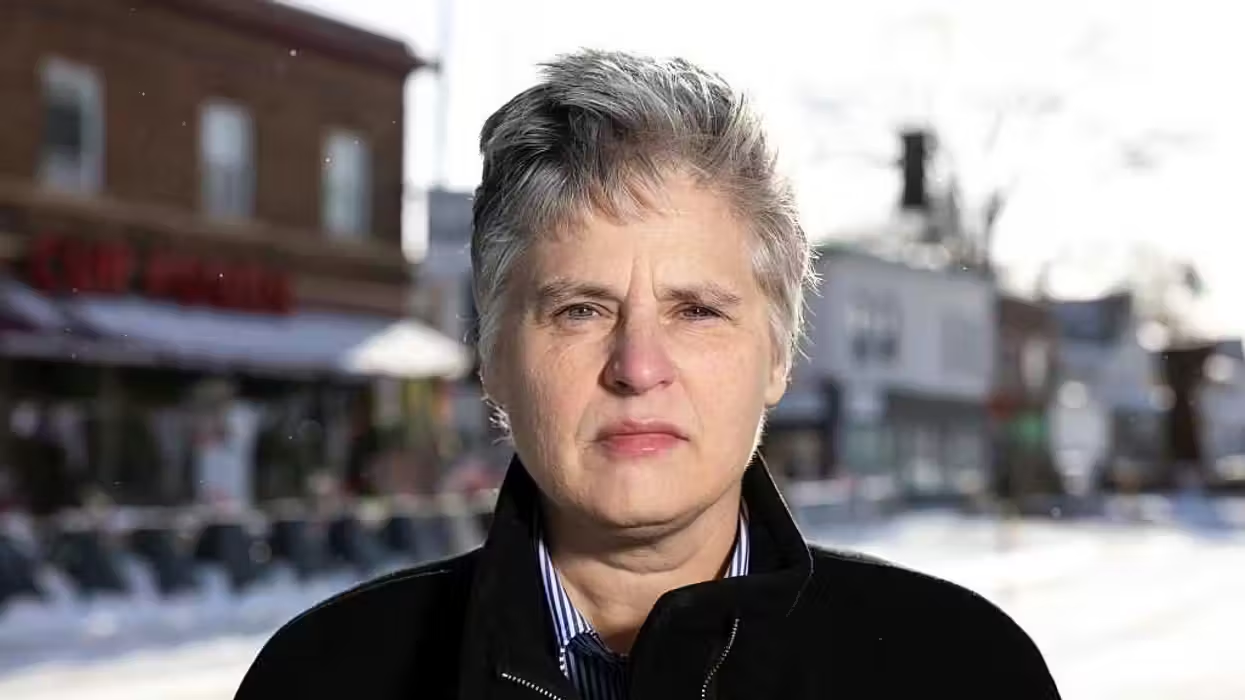As courts have become more powerful, the federal judiciary is no longer filled with the best and the brightest because U.S. senators are blocking qualified nominees, one economist says.
Judges using their position on the bench to push a political agenda is nothing new, but their ability to do so has become greater with the increased size of government, said John Lott, author of “Dumbing Down the Courts: How Politics Keep the Smartest Judges off the Bench.” This means the stakes of a judicial confirmation process are much higher.
 Moments after being married outside the U.S. Supreme Court building, Amanda Adams and her wife Libby Enloe, of Winston-Salem, N.C., pose for photographs with Marriage Equality USA Executive Director Brian Silva and loveandpride.com's Ross Kasper on Capitol Hill July 24, 2013 in Washington, D.C. A couple for more than 21 years, Enloe and Adams decided to get married outside the court after the justices struck down the Defense of Marriage Act in June. (Getty Images)
Moments after being married outside the U.S. Supreme Court building, Amanda Adams and her wife Libby Enloe, of Winston-Salem, N.C., pose for photographs with Marriage Equality USA Executive Director Brian Silva and loveandpride.com's Ross Kasper on Capitol Hill July 24, 2013 in Washington, D.C. A couple for more than 21 years, Enloe and Adams decided to get married outside the court after the justices struck down the Defense of Marriage Act in June. (Getty Images)
“You can understand why political opponents object to putting a smart person, someone who writes well and is influential, on the court. There are more cases that are more important as the federal government has grown,” Lott told TheBlaze.
With higher stakes, Lott said that a smart judicial nominee has both the ability to influence fellow judges on the court, and to write decisions that could sway future legal opinions. Therefore, politicians have a larger incentive to block smarter nominees. The book addresses the entire federal judiciary; district, appellate and the Supreme Court.
The higher stakes are evident in recent high court rulings, including this year's same-sex marriage decisions, President Barack Obama's health care law, the Citizens United case on political speech and the D.C. v. Heller gun rights case. The Supreme Court is expected to soon weigh in on abortion laws enacted at the state level and state voter ID laws challenged by the Justice Department.
Lott has taught economics at Yale, the University of Chicago, Stanford, the University of California Los Angeles, the University of Pennsylvania's Wharton School and Rice University. He was the chief economist for the U.S. Sentencing Commission from 1988 to 1989 and is the author of eight books, including “More Guns, Less Crime.”
Blocking the most qualified jurists gained more public attention in 1987, with the rejection of President Reagan's high court nominee Robert Bork – a process filled with personal attacks that spawned the term “Borking.”
Lott said it is a problem with both sides of the political aisle, and pointed to at least one case where Democrats backed a Republican nominee who was not perceived to be a great legal mind.
“A counter example is Harriet Miers,” Lott said of the failed Supreme Court nominee of President Bush in 2006. “The one position that we knew she had a strong view on was abortion. That's usually a strong litmus test for Democrats. But Democrats came out strongly in favor of her nomination. It was Republicans who defeated her nomination.”
Lott further contrasted the President Obama's two successful Supreme Court nominees, Justice Sonia Sotomayor and Justice Elena Kagan. The Senate confirmed Sotomayor by a vote of 68-31, with nine Republicans voting for her. The Senate voted 63-37 to confirm Kagan, with five Republicans voting to confirm her.
“On the two Obama Supreme Court nominees that were confirmed by the Democratic super majority, Kagan is smarter than Sotomayor, but Sotomayor had an easier time getting confirmed,” Lott said.
At the appellate level he pointed to Obama's stalled nomination of Goodwin Liu to the Ninth Circuit Court of Appeals, and to Bush's failed nomination of Miguel Estrada to the U.S. Court of Appeals for the District of Columbia as examples of intellectually qualified and accomplished nominees blocked from the bench.
Lott said it's not just the U.S. Senate, but the American Bar Association that also shows political concerns when ranking judges.
He called Judges Frank Easterbrook and Richard Posner of the Seventh Circuit Appeals Court in Chicago and Judge Harvie Wilkinson III of the Fourth Circuit Court of Appeals in Richmond, Va. the most influential appellate court judges in the nation. But when they were nominated, they had the lowest ABA ratings of any confirmed appeals court judges, he said.
“Someone who goes to a top 10 law school, graduates at the top of their class, and clerks for a Supreme Court justice is less likely to be confirmed as someone who did not,” Lott said.
–
[related]

 Moments after being married outside the U.S. Supreme Court building, Amanda Adams and her wife Libby Enloe, of Winston-Salem, N.C., pose for photographs with Marriage Equality USA Executive Director Brian Silva and loveandpride.com's Ross Kasper on Capitol Hill July 24, 2013 in Washington, D.C. A couple for more than 21 years, Enloe and Adams decided to get married outside the court after the justices struck down the Defense of Marriage Act in June. (Getty Images)
Moments after being married outside the U.S. Supreme Court building, Amanda Adams and her wife Libby Enloe, of Winston-Salem, N.C., pose for photographs with Marriage Equality USA Executive Director Brian Silva and loveandpride.com's Ross Kasper on Capitol Hill July 24, 2013 in Washington, D.C. A couple for more than 21 years, Enloe and Adams decided to get married outside the court after the justices struck down the Defense of Marriage Act in June. (Getty Images)






